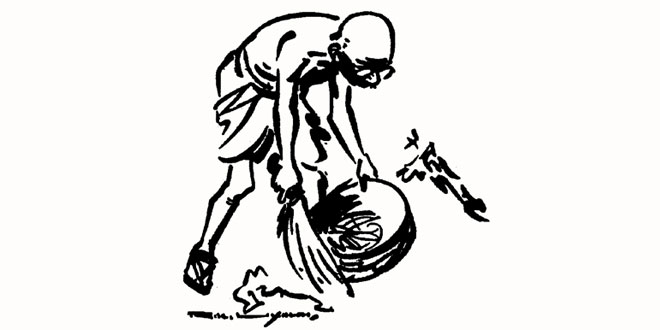Question: What happened in parts of southern India into 1970s and 1980s?
Or
What did Dalit groups do in 1970s and 1980s to assert their rights?
Answer: During 1970s and 1980s, in parts of southern India, several strong Dalit groups came into being and asserted their rights. They refused to perform their so called caste duties and insisted on being treated equally. They refused to follow practices which were based on humiliation and exploitation of Dalits. The powerful castes reacted violently against them. In order to indicate the government that untouchability was still being practiced, Dalits groups demanded new laws that would list the various sorts of violence against Dalits and prescribe strict punishment for those who indulge in them.
Question: What is ‘untouchability’, and who were called ‘untouchables’?
Answer: Untouchability is the individual discrimination against certain classes of persons. Dalits are sometimes called Untouchables. Untouchables are regarded as ‘low caste’ and have been marginalized for centuries.
Question: What is the ‘Reservation Policy’?
Answer: Reservation Policy confirms that a percentage of seats are reserved in the public sector units, union and state civil services, union and state government departments and in all public and private educational institutions, except in the religious/ linguistic minority educational institutions, for the socially and educationally backward classes of citizens or the Scheduled Castes and Tribes who were inadequately represented in these services and institutions.
Question: Why was the Scheduled Castes and the Scheduled Tribes (Prevention of Atrocities) Act, 1989 framed?
Answer: The Scheduled Castes and the Scheduled Tribes (Prevention of Atrocities) Act, 1989, was framed in response to demands made by Dalits and others groups. They wanted the government to stop the ill treatment and humiliation Dalits and tribal groups face everyday.
Question: List two Fundamental Rights in the Constitution that Dalits can draw upon to insist that they be treated with dignity and as equals. Re-read the Fundamental Rights listed on page 14 to help you answer this question.
Answer:Two Fundamental Rights that Dalits can draw upon to insist that they be treated with dignity and as equals are: Right to Equality and the Right to Freedom.
 Class Notes NCERT Solutions for CBSE Students
Class Notes NCERT Solutions for CBSE Students


